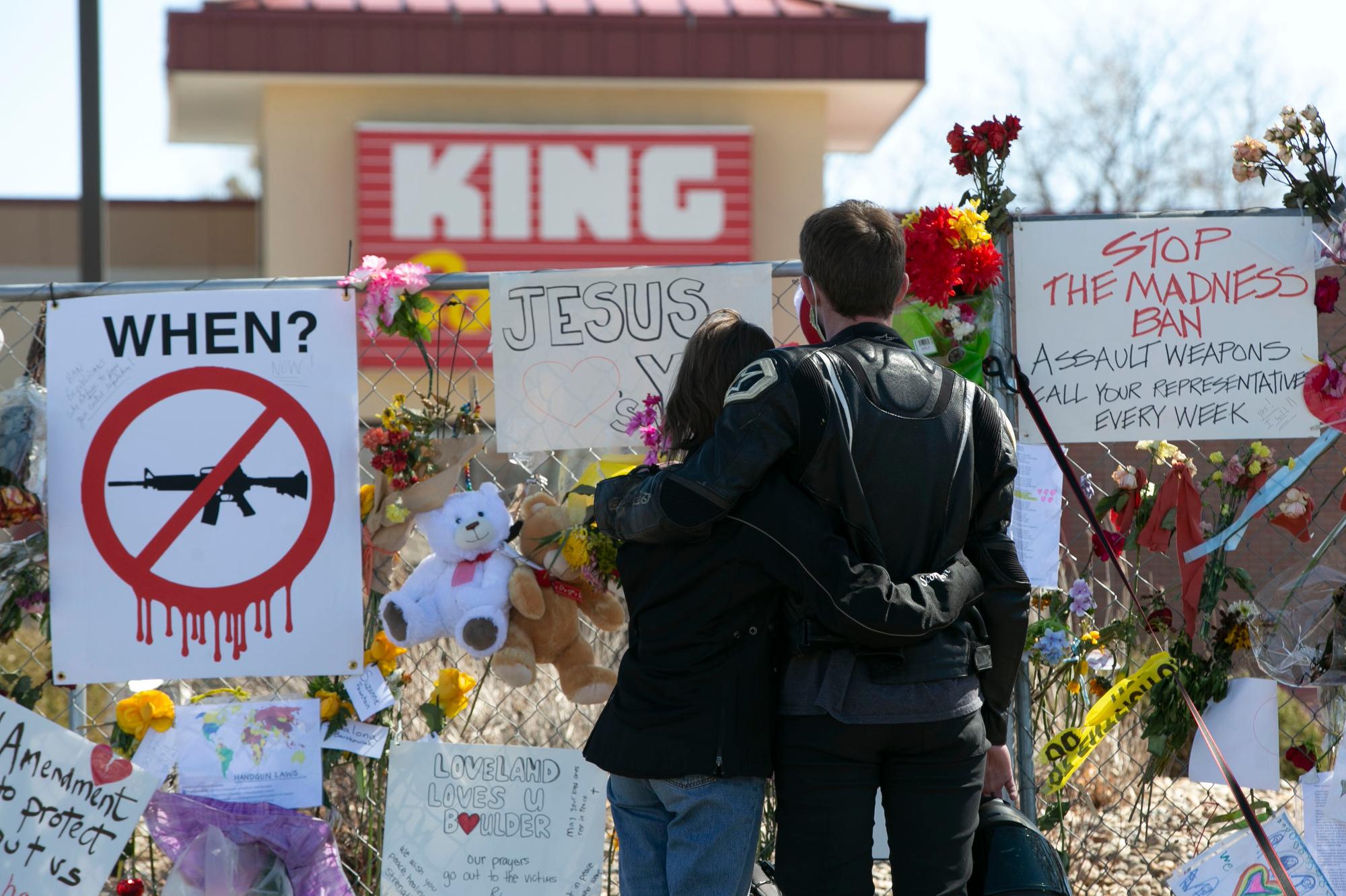
Updated 1/13/23 at 5:15p.m.
A bill drafted by three Colorado Democrats would ban the purchase of what it describes as “assault weapons”, though it would not require people to give up the guns they already legally possess.
A draft of the bill, which has not yet been introduced, has circulated around the Capitol during the first week of the legislative session. Democratic Rep. Andrew Boesenecker, who is listed as one of the main sponsors, confirmed that he and others are working on the bill. He declined to comment further on Friday, but said he would have more to say about the legislation in the coming days.
If the bill is introduced, it would be the first time Colorado lawmakers have formally considered such a ban — raising an issue that is sure to inflame the legislature and even potentially divide some Democrats.
In 2021, shortly after a gunman killed 10 people at a Boulder King Soopers, some lawmakers discussed introducing a ban on some types of firearms. But even though Democrats controlled the legislature, there wasn’t enough support to move forward with the legislation.
This year’s draft proposal would seek to allow current owners to keep any firearms they already own, but ban the sale and transfer of certain classifications of guns going forward. Current owners would need to have documentation of legal ownership dating to before the ban and would be restricted in where they could legally bring their guns.
Gun rights advocates have been circulating the draft bill’s language online as they try to rally opposition.
The draft would define an assault weapon as a “semiautomatic rifle” that uses detachable magazines and has one of a number of features, such as a pistol grip, a folding stock, a barrel shroud or a threaded barrel, among others. The draft also would ban certain .50 caliber rifles, semi-automatic pistols, shotguns with revolving cylinders and semiautomatic shotguns, with various conditions for each type of firearm.
The preliminary language also would make exceptions for police and military members who keep the weapons for work, and it would allow firearms on the list to be used at firing ranges. However, the proposal could be amended. Bills often go through significant changes during the legislative process.
The NRA's state association, the Colorado State Shooting Association called the proposal “tyrannical” in an email to supporters. Democrats hold the widest majority in state history and the NRA said it was already preparing for a legal challenge should the proposal pass and become law.
“To stop the gun-grabbers, we're going to sue the State of Colorado after this bill becomes law. And we need your help,” declared the State Shooting Association.
Some gun rights supporters claim a ban would infringe on constitutional rights, and they argue these types of policies don’t save lives. Republican Rep. Ryan Armagost of Berthoud has an extensive background working with firearms. He spent 22 years in the military and a decade with the Larimer County Sheriff's Office before working in private security and firearms training.
“The biggest thing is just using the terminology assault weapon to basically villainize firearms and owners of firearms,” said Aramagost. “Now we're trying to expand that to include everything under the umbrella of firearms, shotguns, pistols, rifles, anything of the sort would be considered an assault weapon. You know the same thing could be used to demonize anything – a stapler or anything like that can be considered an assault weapon if they're gonna keep pushing that.”
Some gun rights supporters claim a ban would infringe on the constitutional rights, and they argue these types of policies don’t save lives.
Supporters of new gun laws acknowledge no single policy will stop every mass shooting, but they say stricter gun laws can save lives and chip away at the problem. They argue it’s difficult to quantify the suicides that don’t happen and accidental gun deaths that are avoided.
The draft bill states that what it calls assault weapons are inherently more dangerous than other types of pistols and other firearms because they fire rounds at much higher velocities, with bullets that are “designed to fragment and tumble,” making them “uniquely lethal”.
And the draft language notes that analysis of mass shootings between 2009 and 2018, “shows that in shootings when assault weapons were used, six times as many people were shot compared to those without assault weapons.”
This isn’t the only gun policy in the works this session. In her opening day speech, the new Democratic House Speaker, Rep. Julie McCluskie, said lawmakers will introduce bills to increase the minimum age to buy certain firearms and enact a waiting period for all gun purchases, but did not provide details.
“I'm particularly interested in seeing us enact (a) waiting period because I'm concerned about mental health and suicide and waiting periods have been shown to really reduce suicide, and they also reduce homicide, and domestic violence,” said Democratic Rep. Judy Amabile, who represents the district where the Boulder shooting occurred and has been a leader on mental health legislation.
Research into the causes of gun violence, and the effectiveness of certain restrictions, has been limited for decades in the U.S. by a prohibition on using federal funds for research that could promote gun control. That has only recently started to change, and new research is underway.
In recent years Colorado passed several laws around guns, including creating so-called "red flag" restraining orders, allowing local governments to set their own, stricter gun policies, and requiring people to safely store firearms and report any lost or stolen guns.
Historically, new gun restrictions have divided the Democratic caucus, with lawmakers from more rural or politically divided districts at times voting against policies their colleagues support. This year, however, with such large majorities in both chambers, Democrats could lose 13 votes in the House and 5 in the Senate and still pass legislation.









